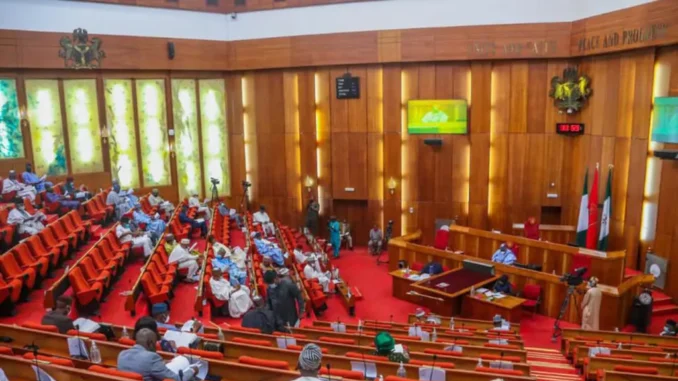
By Divine Sam
The tax reform bills proposed by President Bola Tinubu, which are currently under review by the National Assembly, have become a point of contention, particularly between lawmakers from Northern and Southern Nigeria. These four bills—the Nigeria Tax Bill 2024, the Tax Administration Bill, the Nigeria Revenue Service Establishment Bill, and the Joint Revenue Board Establishment Bill—are seen as pivotal to restructuring Nigeria’s tax system, especially in the allocation of Value Added Tax (VAT) revenue.
Northern Concerns: Northern political figures, such as Rabiu Kwankwaso, have raised concerns about the potential impact of the bills, particularly regarding the distribution of VAT revenue. The bills propose allocating 60% of VAT revenue based on the derivation principle, which some northern governors argue would disproportionately benefit Lagos State due to its numerous company headquarters. This has led to calls from the Northern Governors’ Forum for their lawmakers to reject the bills.
However, Taiwo Oyedele, the chairman of the presidential committee, has defended the proposal, stating that it would benefit northern states more than Lagos. Despite this, many lawmakers remain unconvinced, and the northern opposition to the bills appears to be strong.
Regional Dynamics in the National Assembly:
- In the Senate, which has 109 members, the North holds a slight advantage with 57 senators, compared to the South’s 51 senators. However, the North is not a monolithic bloc, and the North-Central states (Kogi, Kwara, Benue, Nasarawa, Plateau) with 15 senators could potentially sway the outcome. If these states align with the South, the combined numbers could give the bills a path to passage.
- In the House of Representatives, the North has a larger majority with 190 members, compared to the South’s 170 members. Despite this numerical advantage, the Southern bloc, particularly the oil-producing states, may back the bills. The North-Central region’s influence remains crucial, as many lawmakers from this zone often align with southern interests.
While a majority is required to pass the bills (181 out of 360 in the House, 55 out of 109 in the Senate), the outcome will likely hinge on regional alliances, party lines, and the lobbying power of governors, especially those from the North.
Key Players and Divisions:
- Northern leaders like Senator Ali Ndume have been vocal in opposing the bills, claiming they are “dead on arrival,” but the final outcome will depend on how regional interests and party politics play out.
- In the House, some northern lawmakers, including Abdulmumin Jibrin from Kano, have supported the bills, claiming they align with the region’s economic interests. Conversely, lawmakers like Philip Agbese from the South have expressed strong support for the bills, emphasizing the need for tax reforms to reboot Nigeria’s economy.
In summary, the debate over Tinubu’s tax bills is deeply entrenched in regional politics, with Northern lawmakers, particularly from the North-Central, playing a pivotal role in determining whether the bills will pass. The division between the North and South reflects broader concerns about the economic implications of the proposed tax reforms, especially regarding VAT distribution. The National Assembly’s resumption after the break could lead to a critical showdown over these contentious issues.